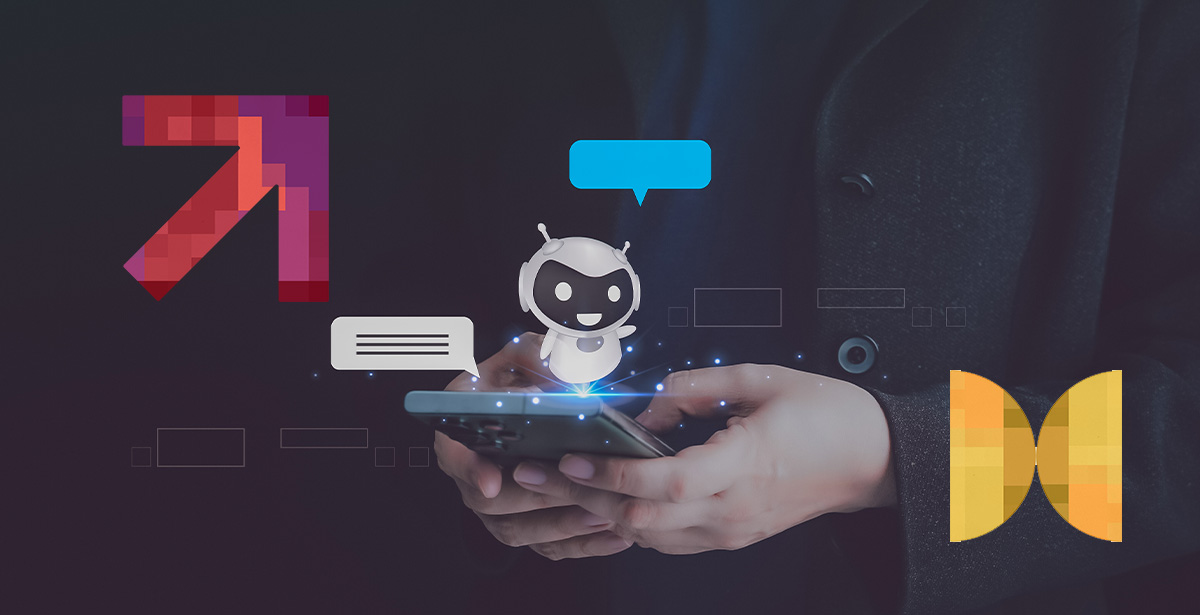7 AI-Powered Enterprise Applications for Business You MUST Have

Enterprise applications for business are no longer optional; they’re mission-critical. And with AI thrown into the mix, it’s rewriting the rulebook.
And that’s why events such as poweredUP by Tampa Bay Tech have received so much footfall in the past three years. They highlight this tech’s power and ensure business owners implement it for a competitive advantage.
If your systems still rely on static dashboards, manual workflows, or rule-based logic, you’re already falling behind. So, here are seven enterprise applications you must upgrade with AI before your competition does.
The Difference AI Makes to Enterprise Business Applications
AI doesn’t just automate, it adds intelligence, autonomy, and continuous adaptability into enterprise systems, Here’s how.
- Predictive and Analytical Intelligence – AI models process structured and unstructured data to deliver real-time forecasts and insights. They’re powering use cases such as attrition prediction through advanced time-series modeling and anomaly detection.
- Autonomous Workflows – Intelligent automation, i.e., combining AI with RPA and cognitive agents, enables workflows that self-correct, adapt to new data patterns, and operate with minimal oversight. This, in turn, allows enterprises to move beyond brittle, rule-based logic.
- Natural Language Interfaces – Large Language Models (LLM) powered natural language processing (NLP) technologies enable conversational access to enterprise applications for business. This drives chatbots, semantic search, document summarization, and automated compliance checks across large knowledge bases.
- Context Awareness and Continuous Learning – AI systems learn from real-time feedback and edge cases. As a result, it refines behavior, supporting resilient, evolving decision frameworks.
- Decision Augmentation – AI complements human judgment by surfacing real-time recommendations, scenario simulations, and risk scores. This is improving the speed and quality of enterprise decision-making.
These capabilities transform enterprise apps into proactive, insight-driven platforms, accelerating responsiveness, ROI, and strategic agility at scale.
💡Ready to push your enterprise apps beyond the basics? AI is reshaping how enterprise software works. Learn more ways to leverage AI in custom enterprise application development and see what your apps could really do.
7 Types of Enterprise Applications That Benefit from AI
Enterprise systems aren’t just running faster; they’re thinking smarter, adapting in real-time, and learning with every interaction. Here are seven enterprise application categories where AI is doing heavy, meaningful lifting.
1) Decision Support System
AI elevates Decision Support Systems from reactive dashboards to proactive intelligence engines.
With machine learning (ML), these systems don’t just analyze historical data; they simulate future outcomes and recommend optimal actions. Bayesian networks and reinforcement learning models allow for adaptive, real-time strategic decisions across departments.
Modern DSS platforms integrate NLP to query large datasets using plain language and apply predictive modeling to simulate what-if scenarios. Moreover, they assist C-suites and operations leads in navigating uncertainty with data-backed foresight.
This makes them one of the most valuable enterprise applications for business leaders navigating uncertainty.
Key AI Integrations
- Predictive and prescriptive analytics
- Real-time simulation and scenario modeling
- NLP-powered decision queries
- Deep learning for anomaly detection in inputs
2) Quality Control Software
AI-powered quality control systems detect micro-defects in manufacturing using computer vision.
Convolutional Neural Networks (CNNs) trained on defect imagery can inspect products with speed and precision far beyond human capacity. These systems then adjust production parameters on the fly, significantly reducing waste and rework.
In digital product development, AI automates QA processes through regression testing, prediction, AI-generated test scripts, and failure pattern recognition using historical bug data.
Key AI Integrations
- Computer vision for product inspection
- ML-driven test prioritization
- AI-generated test scripts
- Predictive alerts for process drift
3) Supply Chain Systems
AI introduces end-to-end visibility and predictive capability in supply chain enterprise app solutions. ML models analyze real-time logistics data, historical demand patterns, and external variables to dynamically optimize routing, inventory levels, and vendor performance.
Reinforcement learning also continuously refines strategies in response to live feedback. Moreover, AI powers real-time exception management, flagging bottlenecks or disruptions before they cascade through the chain.
Key AI Integrations
- Demand forecasting via time-series models
- Real-time route and delivery optimization
- Supplier risk scoring using unstructured data
- Predictive inventory alerts and order orchestration
4) HR Applications
AI streamlines recruitment, employee relations, and compliance. This makes HR platforms some of the most widely adopted AI-powered enterprise applications for business.
Modern applicant tracking system (ATS) platforms leverage NLP to parse CVs contextually. They then allocate scores to candidates based on role fit, behavioral indicators, and culture match.
Chatbots can take this further, automating interview scheduling, candidate FAQs, and onboarding assistance, reducing recruiter workload.
Internally, AI analyzes communication patterns, PTO usage, and workload balance to flag burnout or disengagement risks. It also supports HR compliance through automated audit trails and policy enforcement.
Key AI Integrations
- AI-based applicant matching
- Behavioral analysis for attrition prediction
- NLP chatbots for candidate/employee support
- Automated policy and compliance monitoring
5) Talent Management
Complementing HR apps, AI-powered team management apps personalize employee growth paths. They analyze performance reviews, peer feedback, learning progress, and past project data.
The apps can then suggest relevant upskilling, mentorship pairings, or internal mobility options tailored to each individual.
Advanced platforms go the extra mile, applying clustering algorithms to detect high-potential employees early. They may also feature predictive modeling, which helps organizations plan leadership succession strategically.
Key AI Integrations
- Career trajectory modeling using performance data
- AI-based internal role recommendation
- Personalized learning journey creation
- Leadership potential prediction via ensemble models
6) Financial Systems
AI in financial systems automates key workflows and enhances risk oversight.
Unsupervised ML detects fraud by identifying anomalous patterns in transaction data, even without prior rules. Meanwhile, forecasting models use macroeconomic indicators and internal data to project cash flows and revenue scenarios.
AI-powered Robotic Process Automation (RPA) also automate invoice processing, budget approvals, and variance analysis. Therefore, they speed up financial cycles and reduce manual errors.
Key AI Integrations
- Anomaly detection in transactions
- Predictive revenue and expense forecasting
- Automated reconciliations using intelligent RPA
- ML-driven budgeting and variance analysis
7) Knowledge Base
AI transforms static knowledge bases into adaptive, self-improving systems. This is a key shift in how enterprise applications for business handle internal intelligence and support workflows.
NLP and semantic search let users find answers using natural questions. Meanwhile, AI ranks content based on query context, past usage, and feedback loops.
Further, generative AI can draft new articles from support conversations while supervised learning constantly refines tagging and classification models. This, in turn, enhances content discovery over time.
Key AI Integrations
- Semantic search for better content discovery
- AI-based content clustering and tagging
- Generative responses trained on internal data
- Feedback-based content improvement loops
So, as you can see, these aren’t just examples of enterprise software applications. They’re next-generation tools that can turn legacy systems into intelligent, adaptive business engines.
🔥 Hot tip! Choosing the wrong development partner can stall your AI transformation before it starts. Learn the mistakes to avoid when selecting a software development partner, and make smarter, faster vendor decisions that drive results.
Need Some AI-Powered Enterprise Applications for Business?
Legacy systems won’t win future battles. So, let’s build the enterprise core your growth needs. Nay, deserves.
From smarter decision-making to automated HR and AI-powered workflows, we help you find solutions that win.
Our enterprise application services in Tampa are built to go beyond modernization, giving you a real competitive edge and accelerating growth where it matters.
Fill out the form below to begin turning your operations into your biggest advantage.





